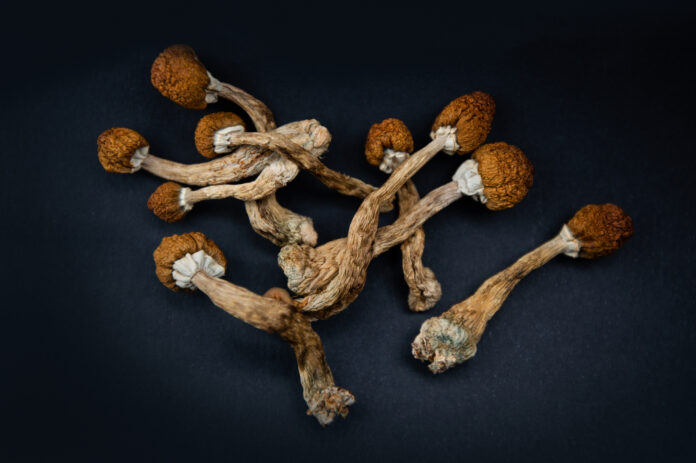
A psychedelic drug with, as of yet, no FDA approved use may substantially help cancer patients with major depression, according to recent results from a Phase II clinical trial. Participants treated with psilocybin, also called “magic mushrooms,” not only experienced a lessening of depressive symptoms but also spoke highly of the therapy after the trial, which included a group therapy component. These findings appear in two online articles in Cancer, a journal of the American Cancer Society.
During the trial, after eight weeks of treatment, patients’ depression severity scores dropped by an average of 19.1 points, suggesting the majority no longer experienced depression. Furthermore, 80% of participants experienced a sustained response to treatment, and 50% showed full remission of depressive symptoms after one week, which was sustained for eight weeks. Treatment-related side effects, such as nausea and headache were generally mild.
The treatment was also popular with patients. “Before the study fully closed, a cohort of the participants requested to continue their group meetings, prompting us to host monthly meetings with one of our core therapists. We’ve been holding these meetings for close to three years, and moving forward, we hope to integrate the participants of our new study, which is an extension of this study,” lead author Manish Agrawal, MD, and CEO of Sunstone Therapies, tells Inside Precision Medicine.
A hallucinogenic chemical found in mushrooms of the genus Psilocybe, psilocybin binds to a specific subtype of serotonin receptor in the brain and can cause alterations to mood, cognition, and perception. Psilocybin is currently classified as a Schedule I drug, with no accepted medical use and considered to have a high potential for abuse. It is not approved by the FDA for any clinical use.
However, multiple randomized controlled trials have demonstrated the safety and potential efficacy of psilocybin-assisted therapy—which combines psilocybin with psychological support from trained therapists—to treat major depressive disorder. The FDA granted breakthrough therapy designations for psilocybin in treatment resistant depression in 2018 and major depressive disorder in 2019. Additionally, ongoing research is also looking into the use of psilocybin-assisted therapy for other mental health conditions, such as anxiety, addiction, and post-traumatic stress disorder.
In this latest Phase II trial involving adults with cancer and major depression, 30 participants at Sunstone Therapies in Rockville, MD, received a single 25 mg dose of synthesized psilocybin plus a 1:1 session with a therapist and group therapy support. “This study was differentiated by its group approach,” explains Agrawal.
“As an oncologist for many years, I experienced the frustration of not being able to provide cancer care that treats the whole person, not just the tumor,” he adds. “This was a small, open-label study and more research needs to be done, but the potential is significant and could have implications for helping millions of patients with cancer who are also struggling with the severe psychological impact of the disease.”
Agrawal is also the senior author of a second study led by Yvan Beaussant, MD, of Dana-Farber Cancer Institute, that gathered input from patients in the trial during exit interviews. Participants reportedly felt that being connected to the group deepened and enriched their experience. Also, the use of both individual and group sessions was found to support the therapy in different ways.
“Participants overwhelmingly expressed positive sentiments about their experience of psilocybin-assisted therapy while emphasizing the importance of the supportive, structured setting in which it took place,” says Beaussant. “Many described an ongoing transformative impact on their lives and well-being more than two months after having received psilocybin, feeling better equipped to cope with cancer and, for some, end of life.”













